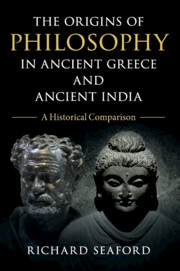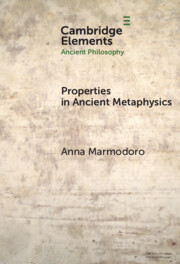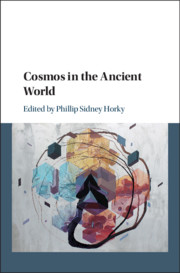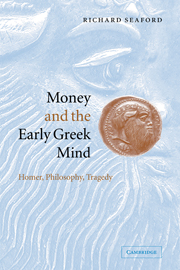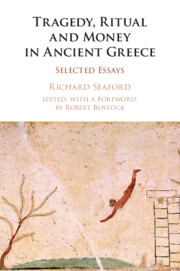The Origins of Philosophy in Ancient Greece and Ancient India
Why did Greek philosophy begin in the sixth century BCE? Why did Indian philosophy begin at about the same time? Why did the earliest philosophy take the form that it did? Why was this form so similar in Greece and India? And how do we explain the differences between them? These questions can only be answered by locating the philosophical intellect within its entire societal context, ignoring neither ritual nor economy. The cities of Greece and northern India were in this period distinctive also by virtue of being pervasively monetised. The metaphysics of both cultures is marked by the projection (onto the cosmos) and the introjection (into the inner self) of the abstract, all-pervasive, quasi-omnipotent, impersonal substance embodied in money (especially coinage). And in both cultures this development accompanied the interiorisation of the cosmic rite of passage (in India sacrifice, in Greece mystic initiation).
- Proposes an entirely new way of understanding the genesis of philosophy in Greece and India
- Exposes the origins of the divergence between European and Indian philosophy and spirituality
- Argues for the interrelation of intellectual and socio-economic processes
Reviews & endorsements
'… this is an insightful and interesting contribution to the literature.' G. J. Reece, Choice
Product details
July 2024Paperback
9781108730815
385 pages
229 × 152 × 20 mm
0.517kg
Available
Table of Contents
- Part I. Introductory:
- 1. Summary
- 2. Explanations
- Part II. The Earliest Texts:
- 3. Sacrifice and reciprocity in the earliest texts
- 4. Self, society, and universe in the earliest texts
- Part III. Unified Self, Monism, And Cosmic Cycle in India:
- 5. The economics of sacrifice
- 6. Inner self and universe
- 7. The powerful individual
- 8. The formation of monism
- 9. The hereafter
- 10. Reincarnation and karma
- Part IV. Unified Self, Monism, And Cosmic Cycle in Greece:
- 11. Psuchē and the interiorisation of mystery-cult
- 12. Monism and inner self
- 13. Money and the inner self in Greece
- 14. Community and individual
- 15. Plato
- Part V. Conclusion:
- 16. The complex imagining of universe and inner self
- 17. Ritual, money, society and metaphysics.

